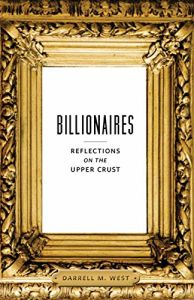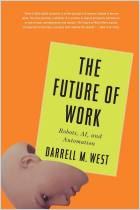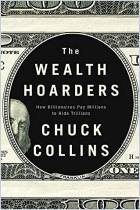加入 getAbstract 阅读摘要

加入 getAbstract 阅读摘要
Darrell M. West
Billionaires
Reflections on the Upper Crust
Brookings Institution Press, 2014
看看什么内容?
Billionaires who spend millions on political advocacy spur the “wealthification” of politics.
Recommendation
Activist billionaires in the US spend millions of dollars on political campaigns and issue advocacy. Supreme Court rulings enabling unlimited spending by super political action committees (PACs), opaque accountability and increasingly weak investigative journalism paved the way for a new political philanthropy. Darrell M. West, the Brookings Institution’s vice president of governance studies, contends that the agendas of rich activists – such as Charles and David Koch, Sheldon Adelson, Michael Bloomberg and George Soros – don’t align with the interests of the general public. He takes a hard look at politically motivated philanthropy and its impact on the US government and its citizens. While always politically neutral, getAbstract recommends West’s carefully researched, well-reasoned analysis of the impact of personal wealth on the democratic process.
Summary
About the Author
Darrell M. West, vice president and director of governance studies at the Center for Technology Innovation at the Brookings Institution, wrote or co-wrote 20 books, including the bestsellers Air Wars and Digital Government.























Comment on this summary